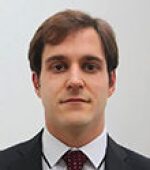SPE has actively participated in the Emerging Leaders Alliance (ELA) since its inception. The alliance allows partnering societies to nominate delegates who come together to expand their leadership skills through a multiday event using direct teaching, group work, and self-study exercises. Attendees are primarily early career professional society leaders from the eight engineering partner societies who are currently interested in improving their management skills. More than 80 SPE young professional members have had the opportunity to attend the event so far.
The 2016 ELA conference focused on a variety of topics, including performance management, emotional quotient, and technical-to-management transitions. The interviewees featured in this article span a range of experience levels: a young professional, an experienced professional in a technical position, and an experienced professional in a management position. Each illustrates the relevance and application of the event’s chosen leadership topics despite one’s career path.
Performance Management
The performance management discussions emphasized the importance of communication, active listening, and observation to optimize performance management. Industry professionals should actively participate in performance management to enhance employee productivity, placement, morale, and evaluations, whether they are providing evaluations or receiving them. When team members provide their inputs on whether the appraisal steps accurately reflect their periodic performance, both parties establish a necessary discourse that ultimately improves their organization.
Evaluators should take into account the reviewee’s background and experience when conducting formal performance reviews. This can help customize appraisals to the reviewee’s needs.
Susan Howes, vice president of SCA Consulting, who has been involved with recruiting petrotechnical talent and performance management of industry professionals throughout her career, said “Based on the principle that every individual is responsible for their own career management, a personalized view is best. However, it is important that your SMART [specific, measurable, attainable, relevant, and time-limited] goals should be aligned with the annual goals of your department and your business unit. Applying a similar approach or streamlined workflow will provide consistency for supervisors with multiple direct reports, but each individual contributor should set their own goals and measure their progress toward achieving them.”
ELA attendees engaged in several exercises to learn how to make performance management a successful endeavor for professionals with various experience levels—new hires, experienced young professionals, and experienced professionals.
- New Hires. Being a relatively fresh set of eyes and through their recent education, new hires can provide valuable feedback to organizations. Motivated new hires could bring new ideas to organizations and evaluate the most recent performance of recruiting talent.
- Young professionals, or mid-career professionals, could obtain their management and leadership skills when conducting formal employee reviews and are typically in positions of influence to improve teams. They can also obtain a wealth of information from experienced professionals’ and peers’ experiences within their organizations.
- Experienced professionals have immense influence to foster growth in companies due to their seasoned leadership, whether in technical or managerial roles. They have the opportunity to synthesize inputs from young professionals and new hires while directing them to optimize their value to the organization.
“As a working professional, you should begin each year with a performance management agreement with your supervisor about what your key job responsibilities will be for the year,” said Howes, adding that “a performance management plan should follow the SMART goal format that is aligned with the annual goals of your department and your business unit.”
Emotional Quotient
Having the awareness to gauge one’s own emotions as well as those of others, known as emotional quotient, provides value not only in all aspects of life, but especially in the workplace. Professionals will frequently work in teams, and perceiving and responding to other team members’ reactions are essential skills to achieve team objectives and maintain morale. Developing this emotional quotient could come from professional training or experiences outside the workplace cross-applied at work.
“I learned about the value of emotional quotient in my college days as a math and engineering tutor,” said Simeon Eburi, a petroleum engineer at Chevron. “Students would come for help with different states of mind and I learned the importance of understanding my emotions and others’ emotions for the overall success of the tutoring session. Once I understood students’ struggles with the subject, and their mental and emotional states, I was able to have more effective tutoring sessions. … Connecting with others on a personal level first before getting into problem solving made me a more effective tutor.”
That experience has helped Eburi connect with colleagues at work. “Colleagues have found me to be personable, approachable, and easy to work with because I could connect with others on different levels and bring people’s best qualities to the table,” Eburi said.
Emotional quotient is important even in a technical sector. “Usually it is due to a gap in emotional intelligence that a professional’s progress is stymied, rather than a shortfall in their technical ability,” said Howes. “Professionals who demonstrate a balance in the components of emotional quotient are usually more successful in organizations.”
Developing such soft skills as active listening and learning about other perspectives could open opportunities at all experience levels.
Technical to Management Transition
The world of work is changing, resulting in a much more fluid workplace. Opportunities for technical professionals to get assignments as managers are abundant and many are promoted because they are recognized experts in their field and do their jobs well. At the same time, this is a career change that requires a different skill set for the new assignment. Transition from technical expert to manager could be challenging, especially without prior management experience.
Technical experts are recognized as problem solvers and intelligent. Orientation necessary for effective management is usually new to a technical professional. Technical experts are usually more involved in focused well-by-well operation as opposed to more broad initiatives. Good managers are creative, people-oriented, balanced, and good team-workers. Professionals should seek opportunities to balance technical and managerial skills to favorably position themselves for the transition.
“I was ready for the managerial role the day when I joined the industry as a young engineer,” said Robello Samuel, chief technical advisor for Halliburton. “I was very successful in managing rigs and drilling operations. The technical intricacies in the drilling operation and quest to study more on the downhole drilling tools moved my needle toward research and development. Also, I wanted to translate my knowledge and experience to students who are ready to join at a time when our knowledge base was eroding and that made me switch to teaching concurrently advanced drilling classes at various universities.”
When moving from a technical to management role, professionals should compile a list of skills to improve to be a better manager for a team. New skills to add will include delegation and motivation. Discipline in the team is equally vital. Professionals ought to find peer mentors who made similar transitions recently who could offer advice on how to succeed in the new roles. New managers could have a steep learning curve to earn rapport and motivate their teams while understanding that they will be judged on how well the team performs. They must remember that their support could improve the team’s performance and develop relationships. Communication and conflict resolution are transferrable skills from the technical to managerial role, and will be integral and defining for the new role.
Professionals must manage their career paths and understand all the benefits and difficulties of a managerial transition. Samuel shared his thoughts on the decision-making process: “The best course of action is to plan ahead early in your career where you would like to be and develop the required skills and traits over the course of your career. Don’t get hobbled by someone else’s recipe for success; you need to have your own lockstep regimented principles to achieve your own objectives.”
Acknowledgements
The authors would like to thank Susan Howes, Robello Samuel, and Simeon Eburi for their willingness to discuss the chosen ELA topics. The authors also acknowledge the help of Nii Ahele Nunoo, drilling optimization engineer for National Oilwell Varco and one of the SPE ELA 2016 attendees, and James Whitaker, SPE’s Young Member Programs Specialist.
For more information on the Emerging Leaders Alliance program, go to emergingleadersalliance.org.

Yogashri Pradhan is a production engineer for the Texas Oil and Gas Institute, where she oversees various production and completions engineering projects in the Permian Basin. She is the cofounder of SPE Cares, a global community service initiative aimed to unite SPE members around the world through volunteering. She holds a BS degree in petroleum engineering from the University of Texas.

Amber Sturrock, Chevron, has focused on subsea operations and subsea brownfield expansion projects for almost a decade. She is managing editor of The Way Ahead, chair of the Offshore Technology Conference Networking Committee, and provides adjunct support of the Women In Energy initiative. Amber received the SPE International Young Member Outstanding Service Award in 2014 and holds a BS in petroleum engineering from Louisiana State University.

Maxim Kotenev is a senior reservoir geoscientist with Sasol in London. He previously worked at Rosneft and Robertson CGG. Kotenev is the coauthor of 15 technical papers. He holds a BSc and PhD in petroleum engineering (Ufa Petroleum University, Russia) and MSc in petroleum geoscience (University of Manchester, UK).

